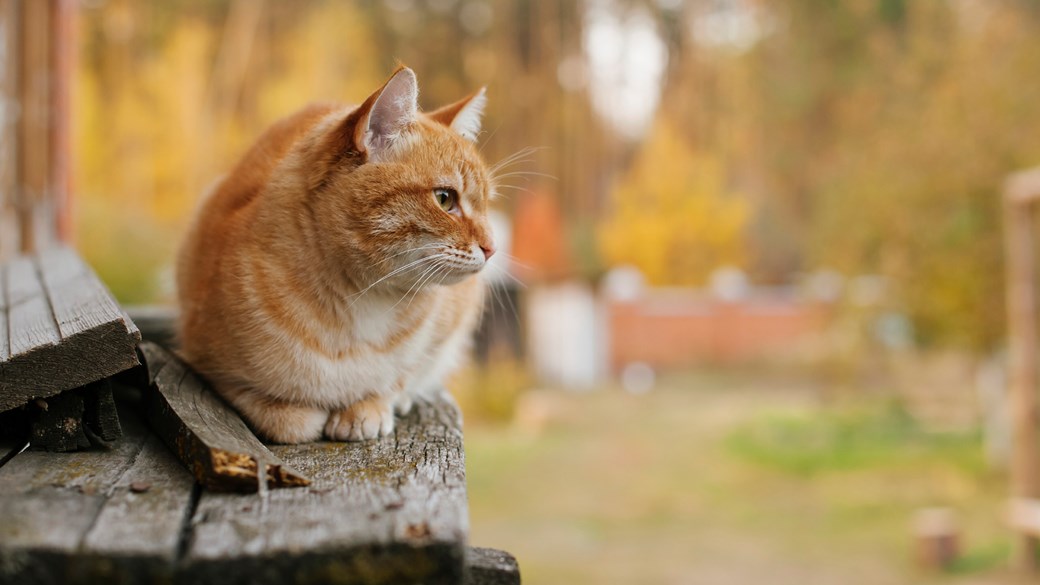
Tritrichmonas And Your Cat
Tritrichomonas is a parasite which lives in the large intestines. Affected cats can get nasty and prolonged diarrhoea, which isn’t fun for anyone!
Tritrichomonas is a microscopic parasite which lives in the large intestines of cats, where it causes diarrhoea. Without intervention, affected cats may have diarrhoea for several years before clearing the infection naturally! Although cats of all ages can develop tritrichomonas diarrhoea, it is most commonly seen in young cats and kittens, and these cats often have a history of being in multi-cat environments such as rescue shelters.
Tritrichomonas is spread through faeces, which is why the risk of infection is higher in places where there are multiple cats. The parasite can also survive for a short time in wet faeces, cat food and water, and this means that transmission can occur between cats who are not in direct contact.
Young pedigree cats, especially Siamese and Bengals, have been shown to be more likely to be infected in the UK. Tritrichomonas is a parasite of cats and cattle, and does not affect humans.
More about tritrichmonas and your cat
Your cat can get tritrichomonas from interaction with an infected cat as the parasite is passed on in faeces – this interaction can include litter tray sharing and mutual grooming.
Tritrichomonas does not survive for a long time in the environment, but will live for short periods, so contaminated items such as shoes, bowls and toys can also transmit the parasite between cats who are not in direct contact – this is most likely in environments such as breeders, rescue centres and catteries.
While cats, especially older cats with a well-developed immune system, may carry tritrichomonas infection without showing any signs, younger cats especially can develop diarrhoea.
Long-standing diarrhoea is usually the only outward sign of a tritrichomonas infection – cats usually are otherwise well, and do not lose weight.
The diarrhoea:
- May contain blood or mucous
- May dribble from the cat if faecal incontinence develops
- May have a strong odour
- May cause the area around the anus to become sore
- Can persist for several years without treatment, which can be difficult
If your cat is experiencing diarrhoea then make an appointment with your local Companion Care practice.
You can’t stop your cat being exposed to tritrichomonas, and there are no available vaccines or Preventive medicine, but there are some top tips to reduce the risk of tritrichomonas:
- Use boarding catteries that you trust and are cleaned regularly – densely populated areas are much more likely to harbourtritrichomonas.
- Monitor – if you see your cat has diarrhoea, get them in to see a vet. There are many things that can cause diarrhoea, and getting to the root of the problem will help you get the right treatment fast.
- Get tested – if you are bringing a new cat into your home, and you already have a cat, you may want to get them tested before the cats are introduced, especially if they have any evidence of loose poo. Your vet will be able to advise you on the procedure if you want this screening, which is not routine.
If you think your cat might have a tritrichomonas infection, the best thing to do is to go to your vet. They can do a full physical examination, and check your cat over from nose to tail, especially as diarrhoea can have many causes!
To diagnose tritrichomonas your vet may recommend faecal tests. These will look for the tritrichomonas themselves, which are invisible to the human eye. As tritrichomonas is an emerging parasite, checking for this parasite may not be part of the standard or basic faecal testing panel and may be a separate test.
Book an appointmentIf left untreated the majority of cats will stop showing signs within 9 months to a year, although some can take more than two, and occasional cases have never resolved.
Treatment for tritrichomonas is difficult, as the standard anti-parasitic treatments available are ineffective against tritrichomonas. One drug has been shown to have some efficacy, but does come with some risk of side effects, and may be difficult to source. Your vet will be able to advise you on the best treatment or management plan for your cat.
